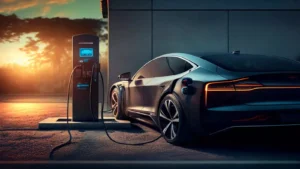Incentives for Electric Cars in Oman
Electric vehicles (EVs) are gaining popularity across the globe due to rising fuel costs, environmental concerns, and advanced technology. Oman is no exception. The Omani government has introduced various incentives to encourage the adoption of electric cars, aligning with its sustainability goals under Oman Vision 2040. Transfer Car Ownership in Oman.

In this article, we’ll explore the latest government incentives for electric cars in Oman, the benefits of owning an EV, and how these policies help buyers save money while contributing to a greener future.
Why Electric Cars Are the Future in Oman
Oman is focusing on reducing carbon emissions and encouraging cleaner transportation methods. With the rising interest in sustainable development, electric vehicles have emerged as a viable solution. The government’s proactive role is visible through its supportive policies, infrastructure development, and import incentives.
Key Benefits of Electric Cars in Oman:
- Zero carbon emissions
- Reduced fuel dependency
- Lower maintenance cost
- Quiet and smooth driving experience
- Government-backed incentives and tax relief
1. Import Duty Exemptions on Electric Cars
One of the most significant government incentives is the waiver or reduction of import duties on electric vehicles. Traditionally, car imports in Oman attract a customs duty of around 5%. However, in efforts to boost EV adoption, Oman has started offering customs duty exemption or significant discounts on the import of electric cars.
Zero Down Payment Cars in Oman
This incentive allows individuals and dealers to save a considerable amount when purchasing EVs from international markets like China, Europe, or the United States.
2. Exemption from VAT and Registration Fees
Electric car buyers in Oman benefit from Value Added Tax (VAT) relief. While most products and services are subject to 5% VAT, some EVs may be exempt or enjoy reduced VAT, depending on their compliance with sustainability regulations.
Additionally, the vehicle registration fee is either reduced or waived for electric vehicles, encouraging more people to make the shift from gasoline to electric.
3. Subsidies for EV Charging Infrastructure
To support the transition to electric mobility, the government is offering grants and subsidies for building EV charging stations in both public and private sectors. Businesses, real estate developers, and even individual homeowners are being encouraged to install EV chargers.
Oman’s utility providers are also playing a key role in facilitating low-cost electricity plans for EV charging during off-peak hours.
4. Green Loan Schemes and Financing for Electric Vehicles
In partnership with local banks, the government supports green auto loans that offer low-interest financing for electric vehicle purchases. These loans come with flexible repayment options and incentives like cashbacks, making EV ownership more affordable for the general public. Have a look used cars to buy in Oman under 700 OMR
This move is especially attractive for first-time car buyers or those looking to replace their fuel vehicles with EVs.
5. Priority Parking and Road Access Benefits
Omani municipalities are introducing special benefits for EV drivers, such as:
- Free or discounted parking in city centers
- Dedicated EV-only parking zones
- Priority access to congested urban areas
- Possible toll waivers on selected roads in the future
Such privileges are designed to enhance the daily convenience of owning an electric car while rewarding environmentally conscious behavior.
Future Plans and Vision 2040 Support
Oman’s Vision 2040 places strong emphasis on environmental preservation and reducing the carbon footprint. The government is working on:
- Creating a nationwide network of EV charging stations
- Integrating EVs into public transport systems
- Encouraging local dealerships to stock more electric models
By 2030, Oman aims to ensure that at least 20% of new vehicle sales are electric, a goal supported by these active policy incentives.
